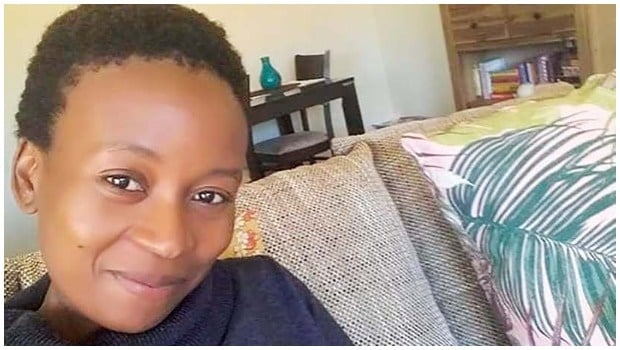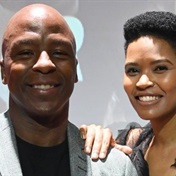
Imagine a world in which your house is paid off by the age of 32 and you live a life that’s virtually debt-free – no overdrafts, credit cards maxed to the limit, store cards or revolving loans.
And no more sleepless nights worrying how you’re going to pay it all off. For many 30-somethings it’s a scenario that’s hard to picture, which is why Moshala Matabane recently set Twitter abuzz.
“Bond paid off,” the single mom tweeted in a post that quickly went viral.
READ MORE: 3 millennials tell us what they're doing to save money to cope with the petrol hikes
How on earth did she do it? Last year a First National Bank survey contained the shocking revelation that more than 56% of middle-income consumers (defined as people with a gross monthly income of between R7 000 and R60 000) spend their entire monthly salary within five days or less of receiving it.
It’s a nightmare situation Moshala can easily relate to – until a few years ago this was how she lived.
“I was drowning in debt,” she says. “I had no savings.”
But if she could manage to turn her life around, then anyone can, she says.
“I was raised in a small rural village in Limpopo,” Moshala adds. “I grew up fetching water with a bucket on my head and studied by candlelight.” When she finished her geology studies and started earning a salary it was spend, spend, spend – and she was soon up to her ears in debt.
As a senior geologist working for a diamond company in the Northern Cape, Moshala earns a good salary but it wasn’t nearly enough to cover her wild shopping sprees and still support herself and her five-year-old son.
“I’d see shoes and buy them,” she says.
READ MORE: 6 ways to make your money go further when you are on a student budget
And when her cards were all maxed out and her bank account empty she’d have to beg her mother to bail her out because her levies, water and electricity accounts were in arrears.
“My mother is a teacher and a widow with six kids so you can imagine the burden I was imposing on her.”
By 2016 the mountain of debt Moshala was facing was so overwhelming she sank into depression. She realised she had to do something or she might lose everything.
So instead of blowing her money on clothes and parties she stayed home and read personal finance books such as How to Make Your First Million and Become Your Own Financial Advisor by local investment guru Warren Ingram. She also listened to podcasts on radio stations 702 and Power FM relating to financial matters and what she learnt about budgeting and saving has completely transformed her life.
Moshala proudly tells us she hasn’t been on holiday for the past two years or bought new clothes or visited a hair salon. Instead she’s used all this money to clear her debts – just as the books suggested.
“I cleared all my bad debts – overdraft, credit cards, store cards and a revolving loan,” she says.
“I got advice to start with my smallest debt and this motivated me. It’s like being in a dark hole and suddenly seeing a spark of light.” By early 2017 this debt was clear and she could focus on saving.
Towards the end of the previous year she’d started to invest in unit trusts tracking the Top 20 and Top 40 JSE shares and with her debts cleared she was able to commit 35% of her net monthly income to further investments.
And as she started making even more changes to her spending habits she was soon able to commit even more to saving. Because of the dip in the markets she took a bit of a knock with her investments late last year but she’d made 10% returns the previous two years, which offset her losses.
READ MORE: 5 things you should stop wasting money on
So in a nutshell that’s how she managed to clear her bond in just under four years. Moshala bought her two-bedroom flat in the mining village of Lime Acres in 2015 and the bond repayments cost her R6 000 a month.
The next thing she’s itching to pay off is her car, a VW Polo. The debt is already two-thirds paid and she’s aiming to make her last instalment soon. In addition to her flat she has another property, a three-bedroom house, which she rents out and still owes a bit on.
But the rental income outweighs the repayment and interest on it.
“It’s strategic debt,” she says. “This is debt that’s attached to an asset that can generate income. It’s the only debt that makes sense to me.”
Nevertheless she’s made it her goal to have this property paid off by June 2020. Moshala says whereas before she blew money on the slightest whim, now she sticks to a strict budget.
“I hardly eat out or go out partying. I buy groceries on sale and in bulk. I’m on DStv Compact. I own a small, unimpressive phone and I take a lunch box to work.”
By taking up running she was able to cut out expensive gym fees and she wears her hair in a flattering natural, short style that she maintains herself.
While some people might view all of this as too much of a sacrifice Moshala insists it doesn’t stop her leading a full and exciting life.
“My life is hectic. I wake up at 6am each day, then it’s work and studies,” she tells us.
“I run about 30km a week in between raising my son and all the investments I do on improving my life in terms of career education and mental fitness. I never get bored.”
She’s also kept busy with her MSc studies related to her qualification in geology and has been doing a management development programme through the University of Stellenbosch Business School.
Moshala says before her financial overhaul she was burdened by “black tax” and felt a need to help everyone in her family because of her good income, but now she draws strict boundaries. She admits it was hard at first but over time everyone adjusted.“I think once you realise the importance of putting yourself first and want to remain faithful to loving yourself, it becomes easier to relate with others without having to please them at your own detriment,” she says.
And with the progress she’s made she now preaches that nothing is impossible – as long as you have a plan and are willing to make sacrifices.
“It’s possible to grow, accumulate and be wealthy.”
WHAT THE EXPERTS SAY
Whether you’re young or old it’s possible to live debt-free, says Martin de Kock, a certified financial planner and director at Ascor. Once you get the basic steps right, such as saving, getting rid of debt, budgeting every month, tracking your expenses or supplementing your income, real wealth will follow, he adds.
Warren Ingram, the author who inspired Moshala, agrees but warns it will require sacrifices.
“South Africans love buying big, expensive cars,” he points out. “Rather than buying a new car, buy an old but safe car and pay cash.”
The experts agree that the biggest things holding people back is the need for instant gratification and not understanding how much interest they’re paying to service unnecessary debt.
“Most youngsters are in financial distress due to large amounts of unsecured loans being taken to buy many luxury items on credit,” says Neil Roets, CEO of Debt Rescue.


















